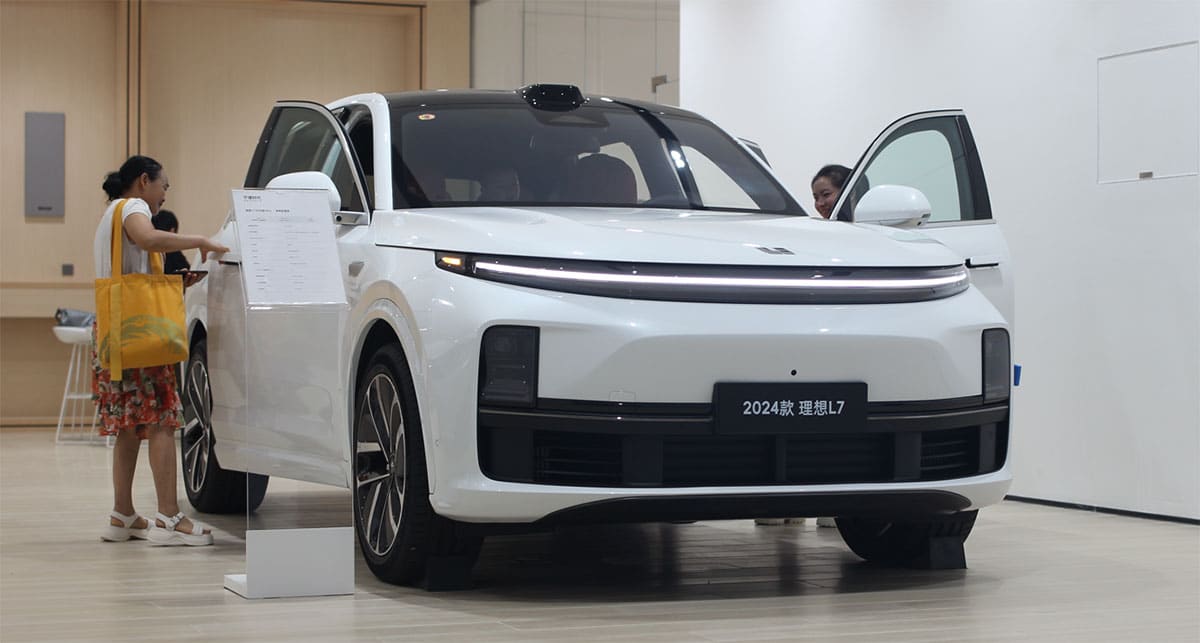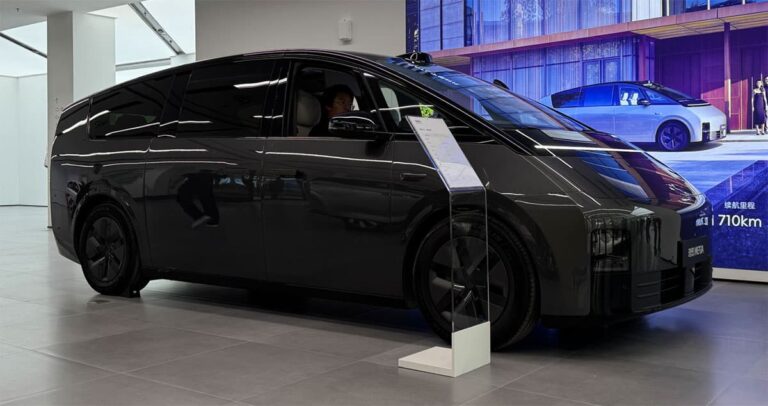Li Auto has slowed down its efforts to expand into overseas markets significantly from its plans a year ago and is focusing its resources on the domestic market, according to local media.

Li Auto (NASDAQ: LI) has slowed down its overseas expansion efforts significantly from what it had planned a year ago, with the Chinese automaker focusing its resources on the domestic market, according to a report in local media outlet LatePost today.
Li Auto's management believes it needs to make better preparations for expanding overseas, such as the need for overseas models to be designed exclusively for local consumers and to be different from domestic models, the report said, citing a person familiar with the matter.
In its efforts to expand into overseas markets, Li Auto will not simply change the system language of its vehicles from Chinese to English, but will differentiate its vehicles in terms of appearance, smart driving features, and other configurations, and have its products launched in overseas markets under a suitable brand, the person said.
In a report on November 30 last year, LatePost said Li Auto planned to start entering overseas markets in 2024, and the first available markets for its models will include Middle Eastern countries such as the United Arab Emirates and Saudi Arabia, and possibly some North African countries.
The company's first model available in overseas markets would be the flagship Li L9, the report last year said, adding that it may also decide whether to also offer the lower-priced Li L8 and Li L7, depending on how well they are received by overseas consumers.
Li Auto currently sells three extended-range electric vehicles (EREVs) -- the Li L6, Li L7, Li L8 and Li L9 -- as well as the Li Mega electric MPV (multi-purpose vehicle).
The Middle East market is more complex than Li Auto initially anticipated, according to the LatePost report today.
Another source close to Li Auto's international business team said the company's expansion into overseas markets has slowed not because of new negative factors, but because the timing is not yet ripe.
Li Auto's management believes that in the short term, it will be difficult for new Chinese carmakers to enter the markets of major countries in the US and Western Europe, while China, the US and Western Europe together account for 85 percent-90 percent of the global luxury car market share, according to LatePost.
The company's models are sold at high prices and it makes little strategic sense to enter car markets in other countries or regions, the report said.
Li Auto was preparing to enter the US market in the second half of 2021 and built a team of about 30 people for that purpose, which at the time was responsible for overseas marketing, brand strategy, strategic analysis, and data analysis, according to the report.
In early 2022, some members of that team were reassigned to Li Auto's domestic operations and others left, the report said.
In 2023, Li Auto was back on the agenda to enter overseas markets, with an executive holding a job fair in Silicon Valley last May, LatePost noted.
During an earnings call on February 26, the company's management mentioned that Li Auto planned to establish a dedicated after-sales service network in the first half of 2024 in Central Asia and the Middle East.
Li Auto would continue to adhere to its direct sales model in overseas markets, and would build a sales network as well as a well-established after-sales service, its management said on that call.
Li Auto had established a presence in the Middle East, launching the recruitment of a local sales and service team in Dubai, it said in February.
Li Auto planned to start delivering vehicles overseas in the fourth quarter of this year, and the first models available will be the Li L9 and Li L7, with customized plans based on local circumstances and policies, according to the call.
Low penetration and small market size for new energy vehicles (NEVs) in the Middle East is one of the reasons why Li Auto is slowing down its plans, LatePost reported today, adding that even in the UAE, where adoption of NEVs is high, NEV penetration is only around 3 percent, well below the global average of 20 percent.
Li Auto's management is satisfied with the current sales of new cars from parallel exports, and therefore is in no hurry to expand directly into overseas markets, according to LatePost.
In addition, fierce competition at home has somewhat influenced Li Auto's decision to enter overseas markets, forcing it to focus its resources on the domestic market, the report said.
